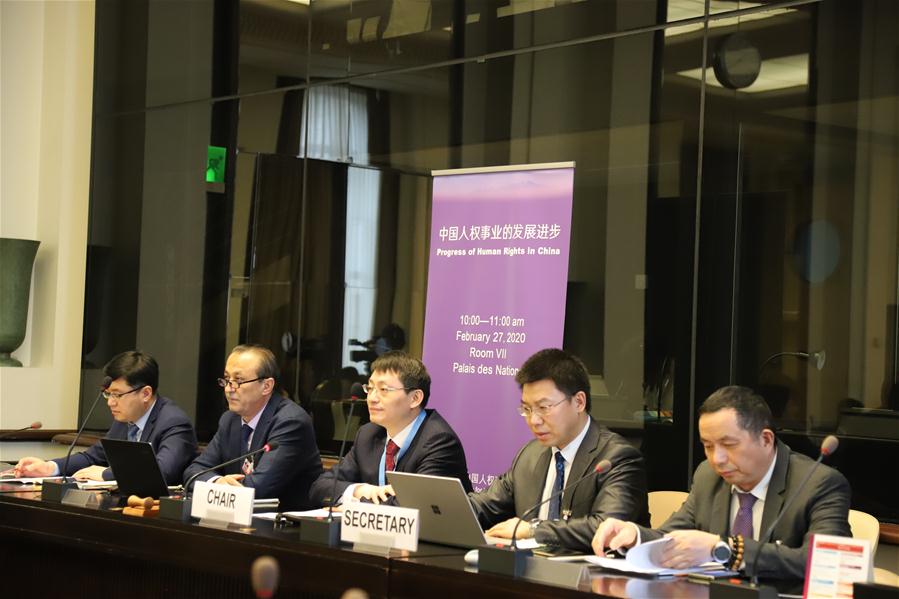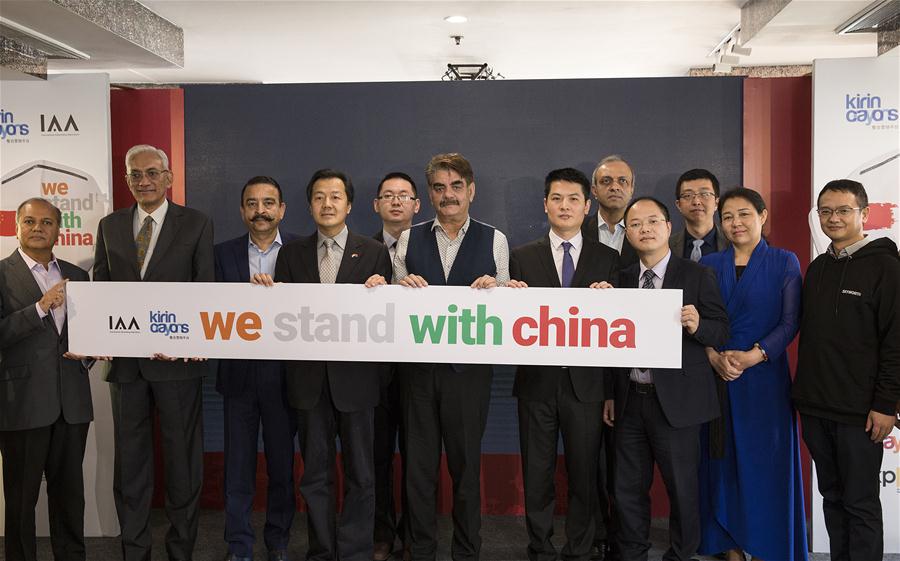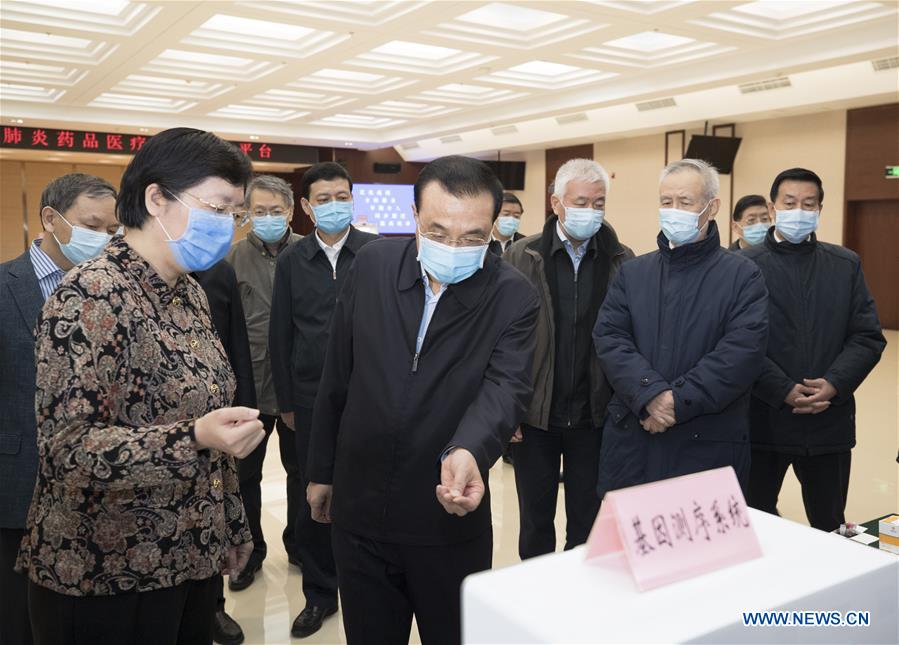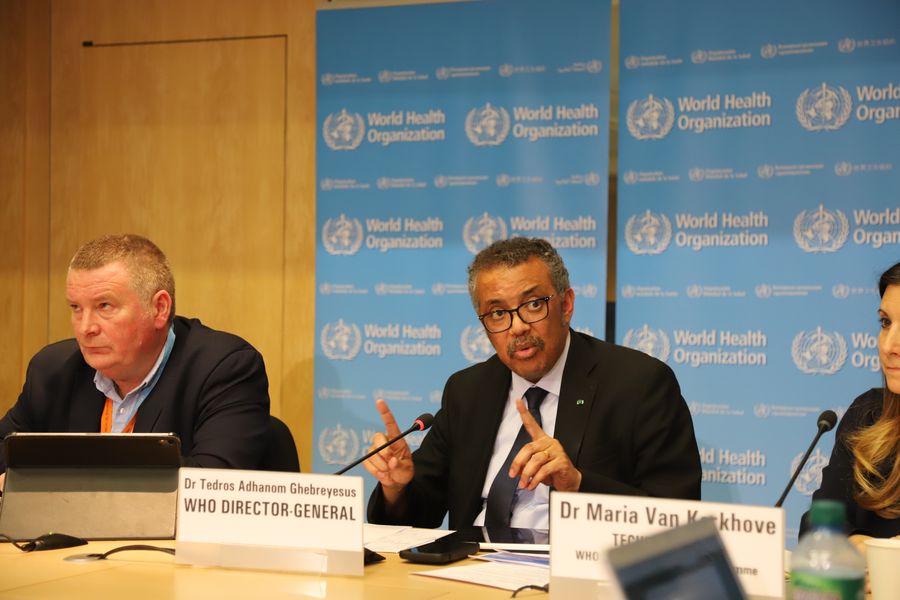
A side event titled "Progress of Human Rights in China" is held on the sidelines of the 43rd session of the UN Human Rights Council in Geneva, Switzerland, Feb. 27, 2020. (Xinhua/Chen Junxia)
GENEVA, Feb. 28 -- A group of scholars from the China Society for Human Rights Studies on Thursday shared their views on issues related to human rights protection on the sidelines of the ongoing 43rd session of the UN Human Rights Council here.
At a side event titled "Progress of Human Rights in China," they introduced the country's human right protection system, the history, culture and religions of Xinjiang Uygur Autonomous Region, as well as China's efforts to protect human rights in the fight against the novel coronavirus.
In China, the system to protect human rights under the rule of laws has become more stronger and mature and people's human rights have been better guaranteed, Lu Zhian, executive deputy director of the Human Rights Research Center of Fudan University, told the audience.
He said that ensuring social equality and justice and people's rights is a significant advantage of China's state system and governance system. Thus, to adhere to and advance the socialist system with Chinese characteristics and modernize China's governance system and capacity for governance means to improve its human rights protection and safeguard people's rights in a more comprehensive and effective way.
Dr. Mahemuti Abuduwaili, an Uygur historian from the Xinjiang Academy of Social Sciences, said he has witnessed the historic changes in Xinjiang since the reform and opening up, calling on people in the region to keep pace with the time and be more open and inclusive to learn and understand other cultures in China as well as the world.
Liu Zhengjiang, director of the Chinese Language Institute of the Xinjiang University, shared his opinions with his own experience that the ethnic education in Xinjiang, including the Uygur language study, is a result of adapting to Xinjiang's bilingual society and the implementation of Chinese ethnic policies in the region.
"Due to that, the ethnic education in Xinjiang has developed rapidly, the educational fairness has been ensured and the quality of ethnic education has been improved," he said.
As for the violence and terrorism in the region, Zheng Liang, a professor from the Guangzhou-based Jinan University, highlighted the big threat posed by the terrorist group East Turkestan Islamic Movement, saying that the group's ideological system was under the influence of al-Qaida.
Some countries are indifferent to its harms, and sometimes even take double standards to measure the Chinese government's actions against it, Zheng said, adding that "this does not help global counter-terrorism cooperation and will harm the interests of the international community as a whole in the long run."
Meanwhile, Xu Yao, a researcher of the Human Rights Research Center of the Nankai University, briefed the audience on China's human rights protection in the process of COVID-19 prevention and control.
Xu described the epidemic prevention and control "a big human rights challenge," however, he said that China has taken a batch of systematic and comprehensive measures to contain the spread of the disease as soon as possible.
These measures have effectively guaranteed patients' rights to medical treatments and safeguarded their privacy, and ensured the population's rights to receive public health services and learn information about the epidemic prevention and control.













